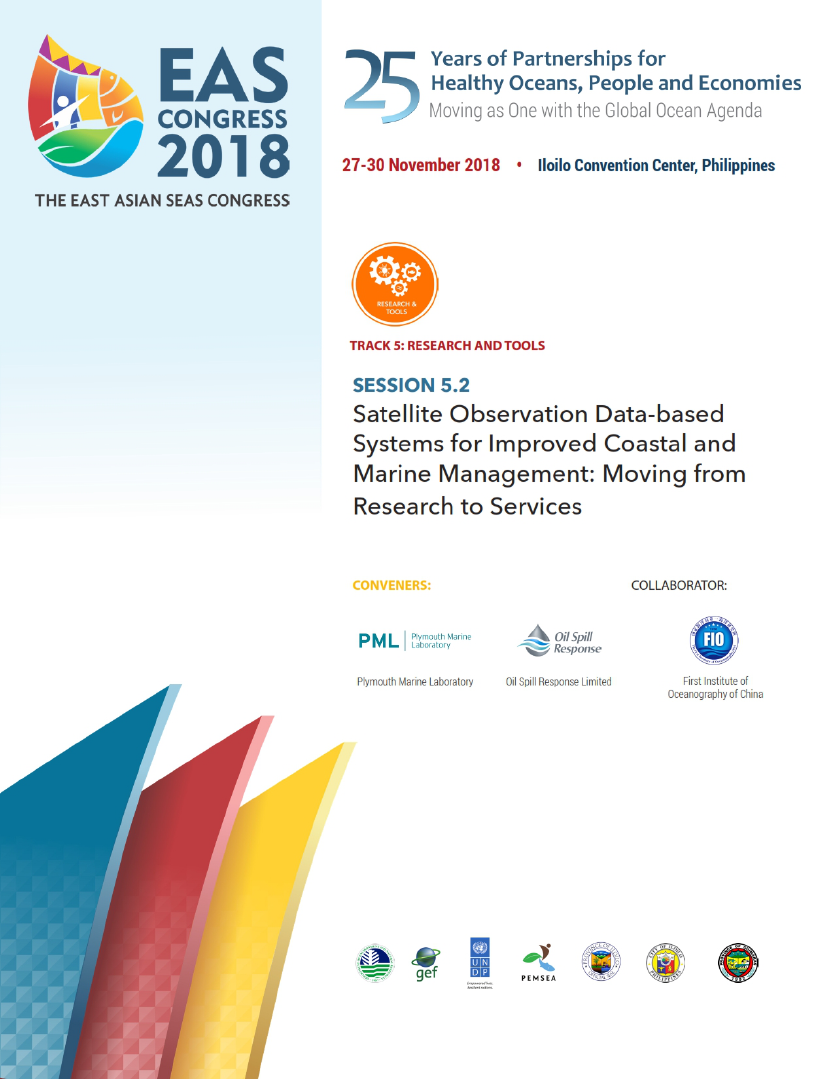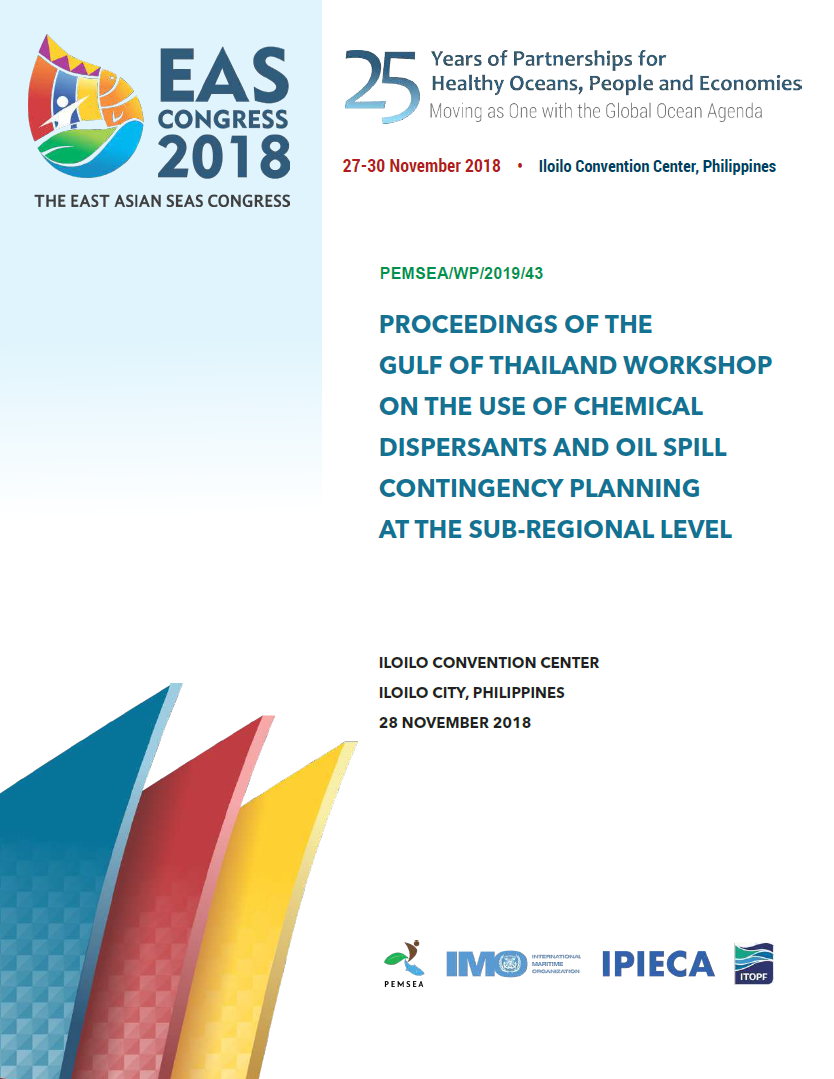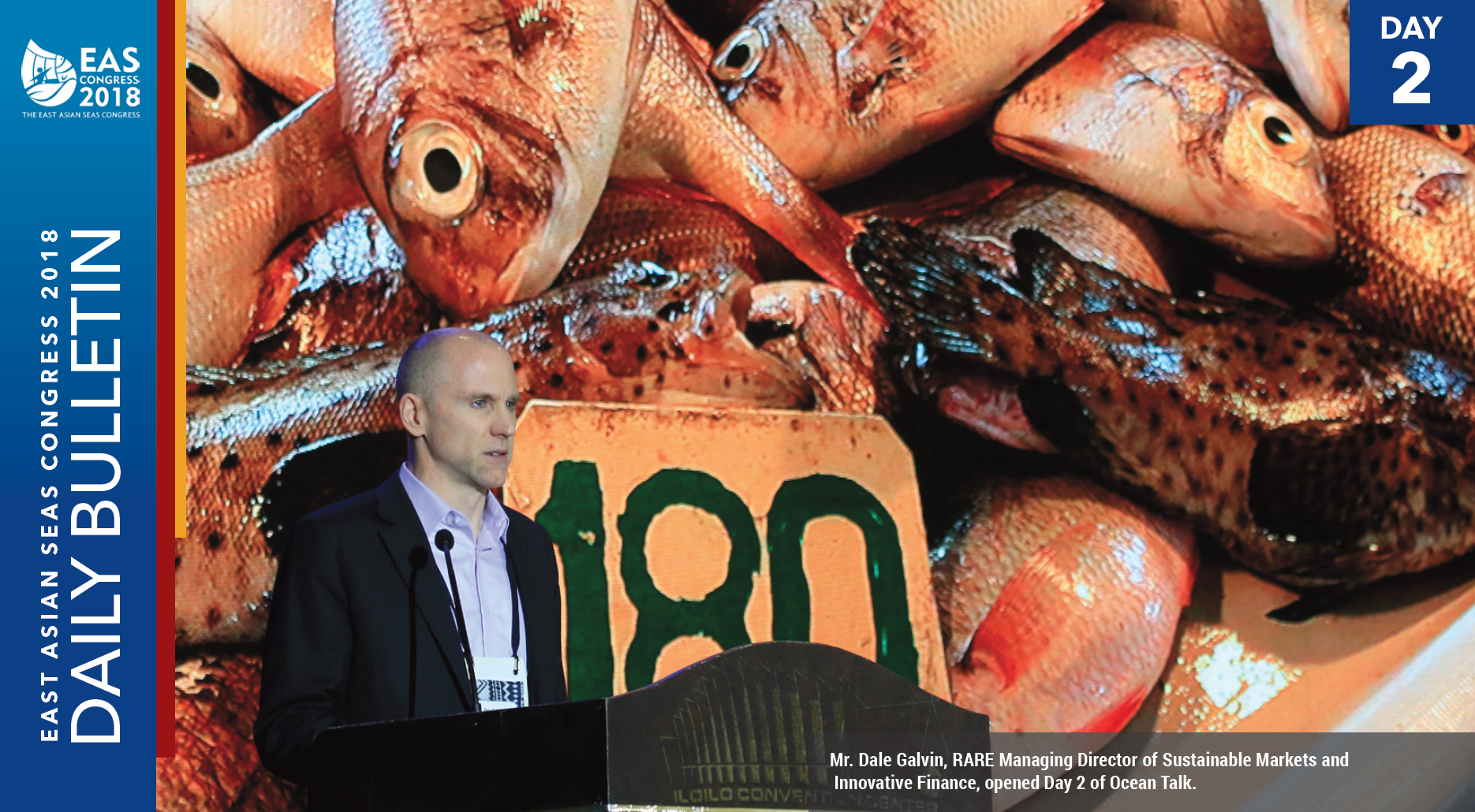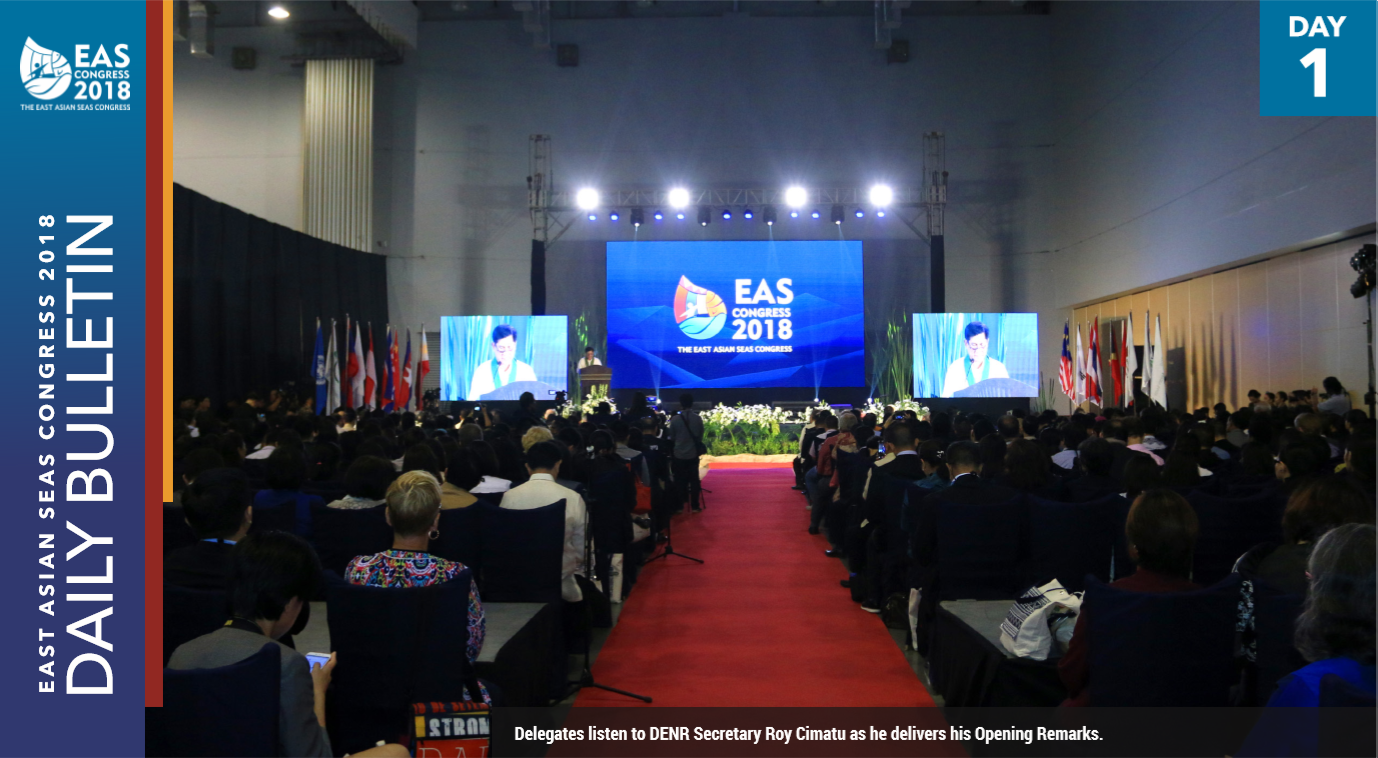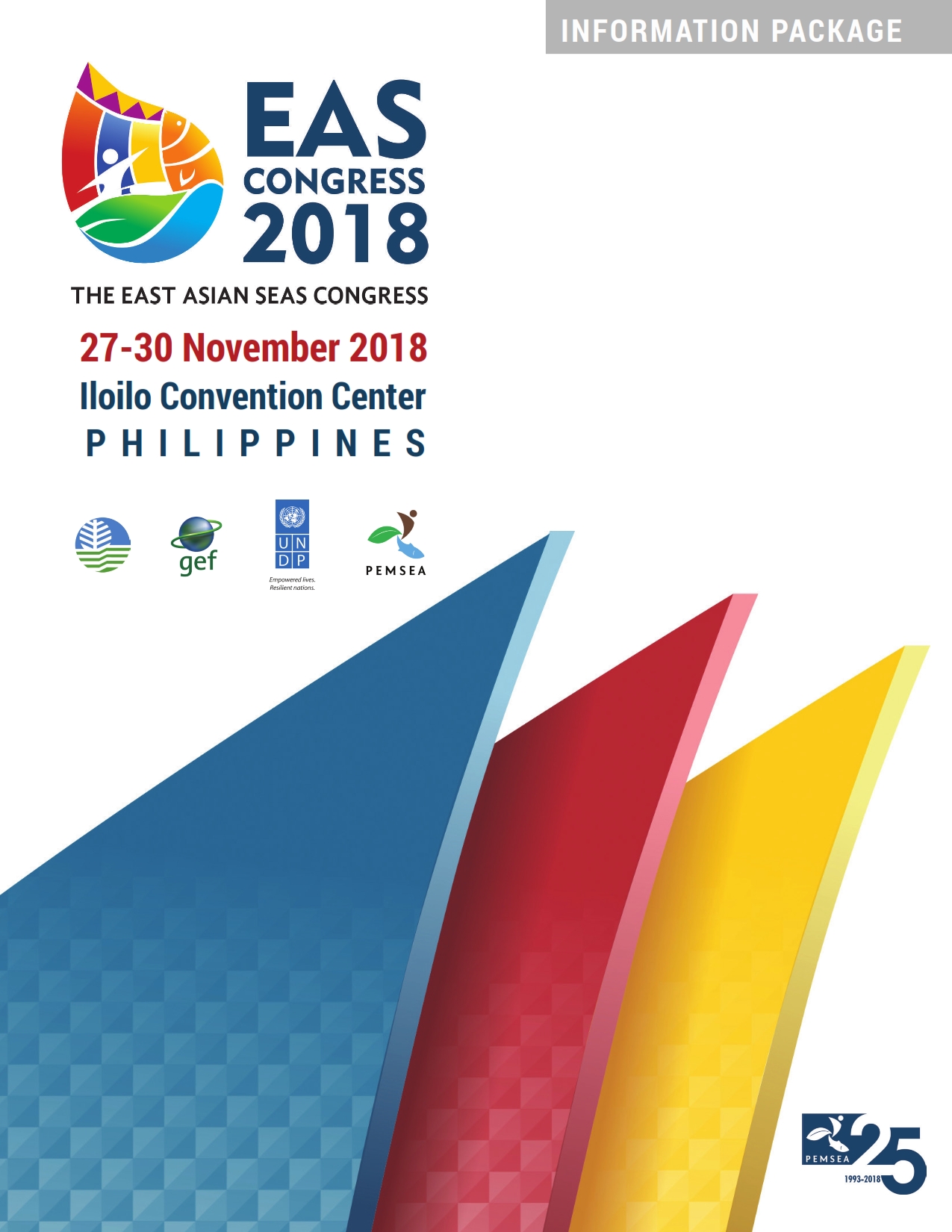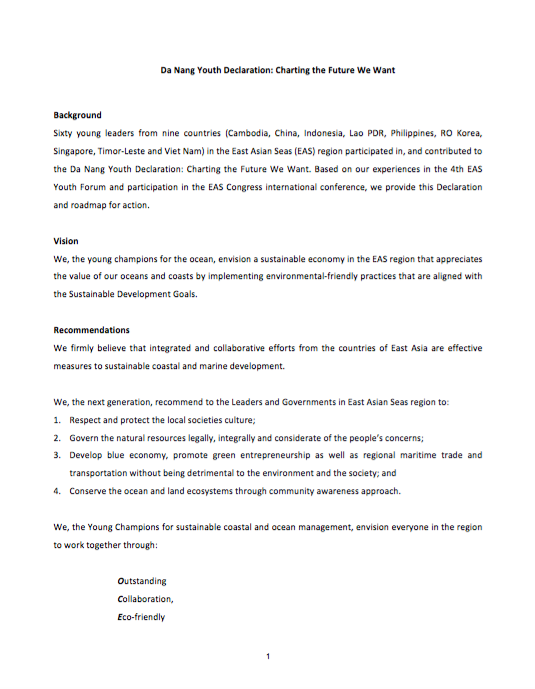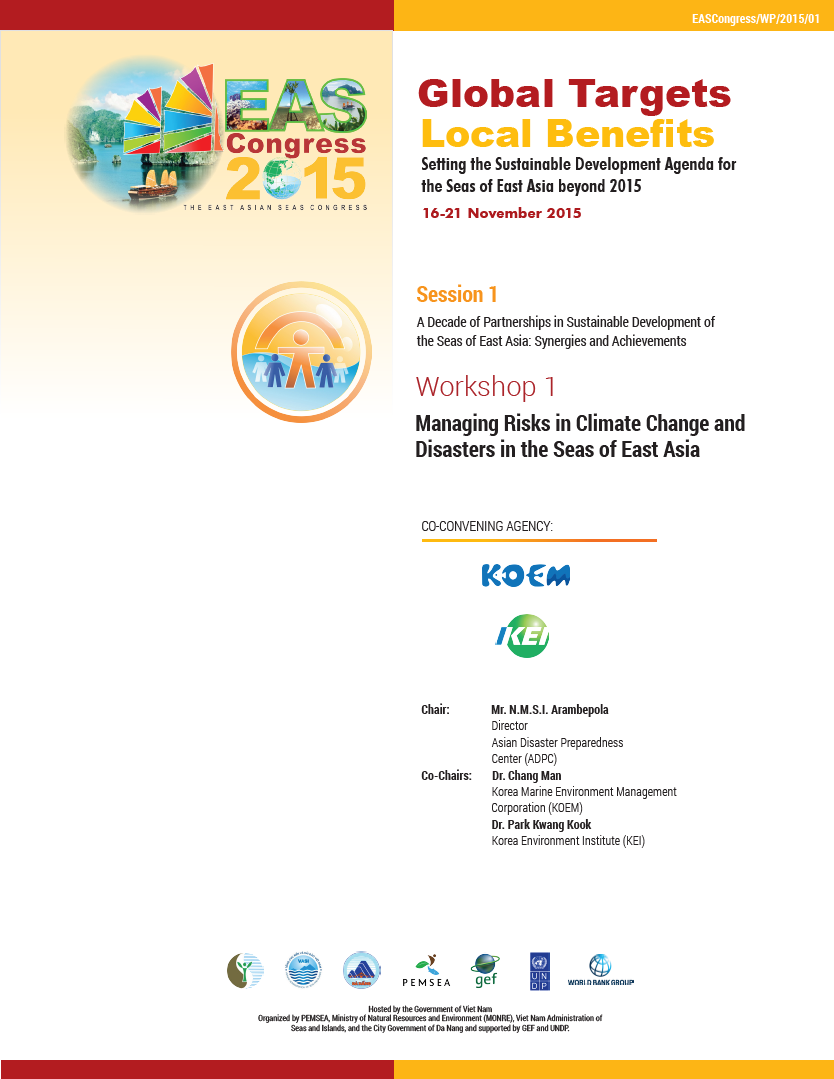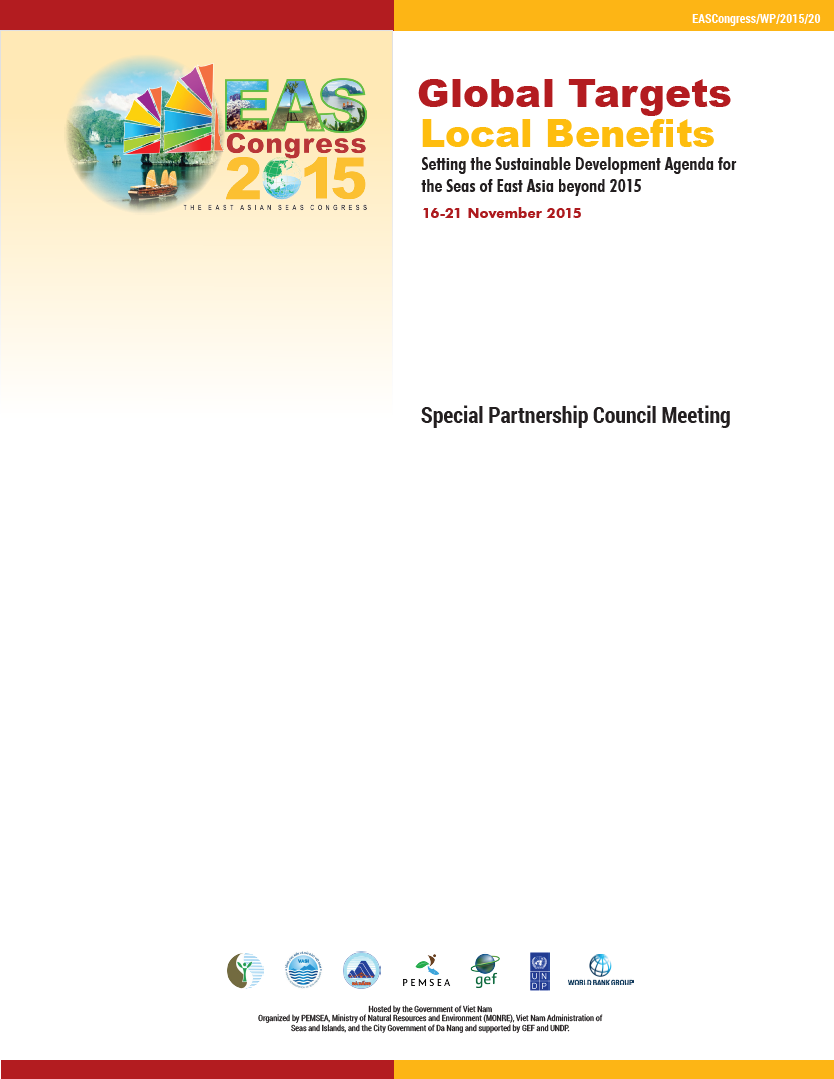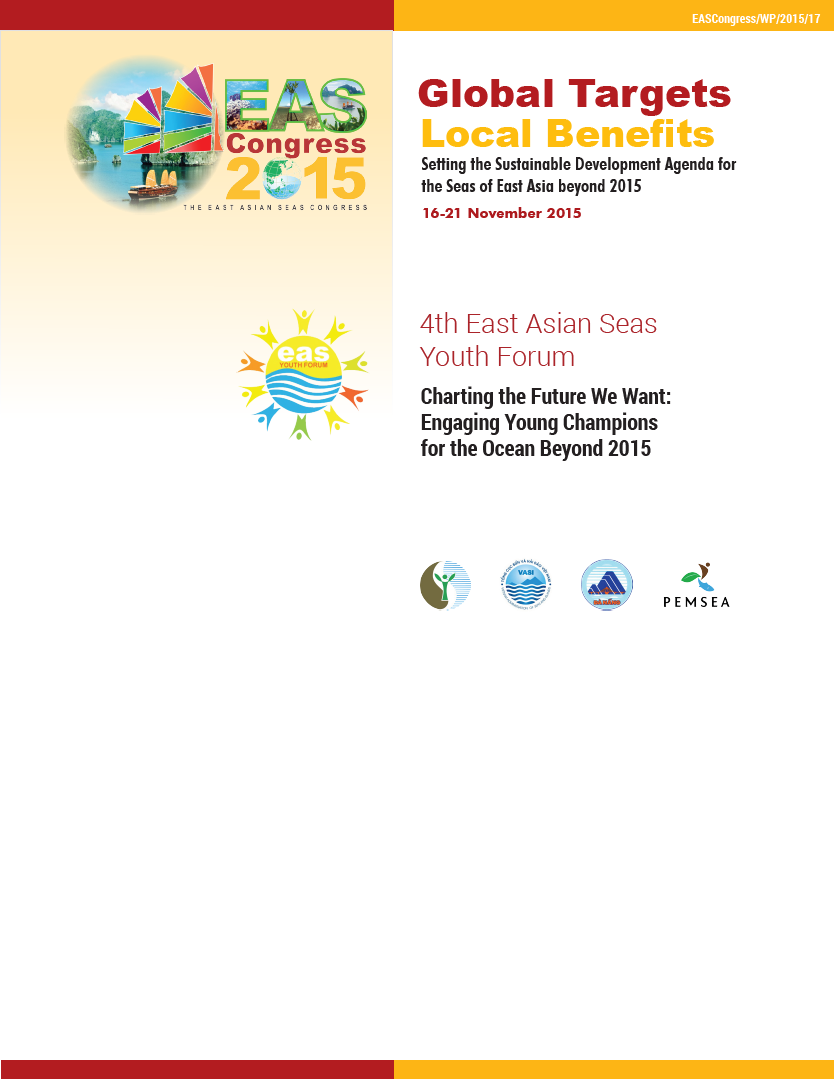
Breadcrumb
Proceedings of the workshop on Satellite Observation Data-based systems for improved coastal and marine management: moving from research to services (EASC2018 Session 5 Workshop 2)
Earth observations from space can provide unique and cost-effective information to greatly aid sustainable marine management in the East Asian Seas region. This is demonstrated through developments of scientific integration into services allowing actionable intelligence to end-users, such as those in fisheries and aquaculture, marine planning, water quality monitoring, maritime security, oil spill preparedness and response, and environmental protection.
The sessions specifically aimed to identify opportunities for the application or further integration of Earth Observation (EO) data, including training for the use of Earth Observation data to support future SDS-SEA (Sustainable Development Strategy for the Seas of East Asia) actions.
Proceedings of the Gulf of Thailand workshop on the use of chemical dispersants and oil spill contingency planning at the sub-regional level (EASC2018 Special Session)
The Gulf of Thailand (GOT) workshop on the Use of Chemical Dispersants and Oil Spill Contingency Planning at the Sub-regional Level was successfully conducted on November 28, 2018 at Iloilo Convention Center, Iloilo City, Philippines.
The Workshop was attended by nineteen (19) representatives from the GOT national contact points and relevant agencies of Cambodia, Thailand and Vietnam and partner organizations from the Partnerships in Environmental Management for the Seas of East Asia (PEMSEA), IMO-IPIECA Global Initiative for South East Asia (GI-SEA) and ITOPF.
EAS Congress 2018 Daily Bulletin Day 2
EAS Congress 2018 Daily Bulletin for 28 November 2018.
EAS Congress 2018 Daily Bulletin Day 1
EAS Congress 2018 Daily Bulletin for 27 November 2018.
East Asian Seas (EAS) Congress 2018 Program
The upcoming East Asian Seas (EAS) Congress celebrates 25 years of partnerships for healthy oceans, people and economies.
Application forms to organize Partnership Hubs may be found here.
Information on EAS Congress registration and other arrangements will be released soon.
Fourth EAS Youth Declaration
Sixty young leaders from nine countries (Cambodia, China, Indonesia, Lao PDR, Philippines, RO Korea, Singapore, Timor-Leste and Viet Nam) in the East Asian Seas (EAS) region participated in, and contributed to the Da Nang Youth Declaration: Charting the Future We Want. Based on our experiences in the 4th EAS Youth Forum and participation in the EAS Congress international conference, we provide this Declaration and roadmap for action.
Proceedings of the workshop on Managing Risks in Climate Change and Disasters in the Seas of East Asia (EASC2015 Session 1 Workshop 1)
Session 1:
A Decade of Partnerships in Sustainable Development of the Seas of East Asia:
Synergies and Achievements
Workshop 1:
Managing Risks in Climate Change and Disasters in the Seas of East Asia
17‐18 November 2015
Co‐convening Agencies:
Korea Marine Environment Management Corporation (KOEM) and
Korea Environment Institute (KEI)
Chair:
Mr. N.M.S.I. Arambepola, Asian Disaster Preparedness Center (ADPC)
Co‐chairs:
Dr. Chang Man, KOEM
Dr. Park Kwang Kook, KEI
Proceedings of the Special Partnership Council Meeting (EASC2015)
The Special Partnership Council Meeting was held at Ocean Ballroom of Furama Resort Hotel, Da Nang, Viet Nam on November 18, 2015. The Ministry of Natural Resources and Environment of Viet Nam hosted the event, which was attended by representatives from 11 Country Partners and 16 Non‐Country Partners. Representatives from the UNDP, UNEP, the GEF, the World Bank, CBD Secretariat, WorldFish, GIZ, and several universities also participated in the meeting.
The participants were welcomed by Ambassador Mary Seet‐Cheng, Chair of EAS Partnership Council, Mr. Chu Pham Ngoc Hien, Deputy Minister of Ministry of Natural Resource and Environment of Vietnam and Mr. Stephen Adrian Ross, Executive Director of PEMSEA. Dr. Chua Thai‐Eng, Chair Emeritus of the EAS Partnership Council, delivered a keynote on legacies of PEMSEA and future directions. The meeting witnessed the partnership development of PEMSEA with signing of agreements with Burapha University (Thailand), Prince of Songkla University (Thailand), National University of Timor‐Leste, Oriental University of Timor‐Leste and Ocean College of Zhejiang University (China) to become PEMSEA ICM Learning Centres. PEMSEA also signed an MOU with DPR Korea to expand ICM programs in the country. UNDP, the GEF, OPRI‐SPF, the World Bank, CBD Secretariat, ACB and WorldFish made statements on the accomplishments of PEMSEA, opportunities of the organizational development and future areas of collaboration under the framework of the SDS‐SEA 2015.
Proceedings of the 4th East Asian Seas Youth Forum (EASC2015)
The Fourth East Asian Seas Youth Forum (YF4) was one of the special events of the EAS Congress 2015, which was held from 16‐21 November 2015 in Da Nang City, Viet Nam. The EAS Congress and the Youth Forum were co‐organized by the Government of Viet Nam through the Ministry of Natural Resources and Environment (MoNRE), Viet Nam Administration of Seas and Islands (VASI), City Government of Da Nang and the Partnerships in Environmental Management for the Seas of East Asia (PEMSEA).
Carrying the theme, “Charting the Future We Want: Engaging Young Champions for the Ocean Beyond 2015,” the YF4 gathered young leaders from the region to showcase their initiatives contributing to the achievement of the SDGs, as well as enhance their skills and strengthen their role in the sustainable development of the oceans and coasts.
